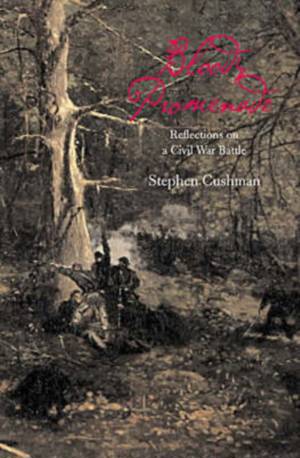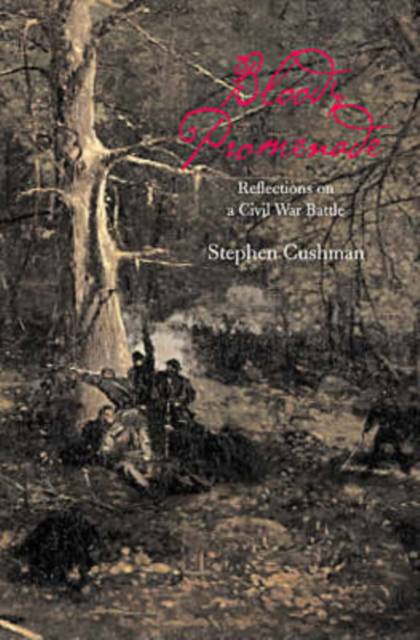
- Retrait gratuit dans votre magasin Club
- 7.000.000 titres dans notre catalogue
- Payer en toute sécurité
- Toujours un magasin près de chez vous
- Retrait gratuit dans votre magasin Club
- 7.000.0000 titres dans notre catalogue
- Payer en toute sécurité
- Toujours un magasin près de chez vous
Description
On 5 and 6 May 1864, the Union and Confederate armies met near an unfinished railroad in central Virginia, with Lee outmanned and outgunned, hoping to force Grant to fight in the woods. The name of the battle--Wilderness--suggests the horror of combat at close quarters and an inability to see the whole field of engagement, even from a distance. Indeed, the battle is remembered for its brutality and ultimate futility for Lee: even with 26,000 casualties on both sides, the Wilderness only briefly stemmed Grant's advance.
Stephen Cushman lives fifty miles south of this battlefield. A poet and professor of American literature, he wrote Bloody Promenade to confront the fractured legacy of a battle that haunts him through its very proximity to his everyday life. Cushman's personal narrative is not another history of the battle. "If this book is a history of anything," he writes, "it's the history of verbal and visual images of a single, particularly awful moment in the American Civil War." Reflecting on that moment can begin in the present, with the latest film or reenactment, but it leads Cushman back to materials from the past. Writing in an informal, first-person style, he traces his own fascination with the conflict to a single book, a pictorial history he read as a boy. His abiding interest and poetic sensibility yield a fresh perspective on the war's continuing grip on Americans--how it pervades our lives through films and songs; novels such as The Red Badge of Courage, The Killer Angels, and Cold Mountain; Whitman's poetry and Winslow Homer's painting; or the pull of the abstract idea of the triumph of freedom.
With maps and a brief discussion of the Battle of the Wilderness for those not familiar with the landscape and actors, Bloody Promenade provides a personal tour of one of the most savage engagements of the Civil War, then offers a lively discussion of its aftermath.
Spécifications
Parties prenantes
- Auteur(s) :
- Editeur:
Contenu
- Nombre de pages :
- 295
- Langue:
- Anglais
- Collection :
Caractéristiques
- EAN:
- 9780813920412
- Date de parution :
- 29-10-99
- Format:
- Livre broché
- Format numérique:
- Trade paperback (VS)
- Dimensions :
- 157 mm x 235 mm
- Poids :
- 503 g

Les avis
Nous publions uniquement les avis qui respectent les conditions requises. Consultez nos conditions pour les avis.






